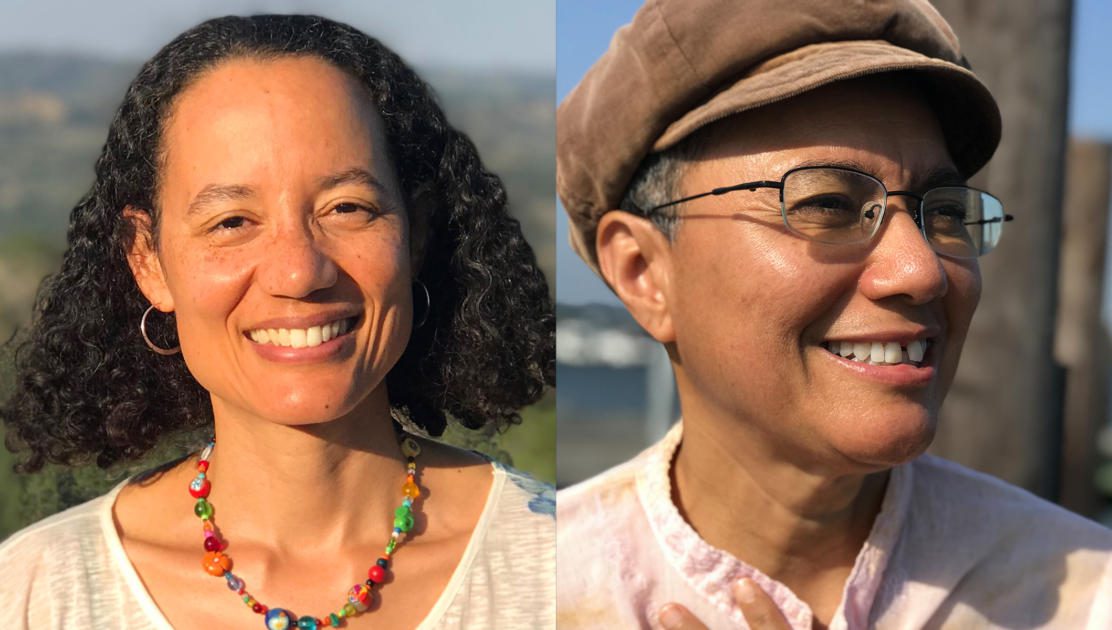Celebrating a Year of Connection in Our BIPOC Meditation Sangha
by Anna Selle
Once a week, members of a BIPOC meditation sangha hosted by the Garrison Institute have put time aside to join a shared and safer space. What began as a virtual gathering in response to the COVID pandemic has become a real community — something that its members think will continue long after the pandemic subsides.
The sangha was formed by two meditation teachers, Kaira Jewel Lingo and Dr. Marisela Gomez. In the summer of 2020, communities in the U.S. were at a critical moment: people around the country were participating in week-long protests ignited by police brutality, the COVID-19 pandemic continued to rage on, and an upcoming presidential election promised hope for some and disenchantment for others.
Both Kaira Jewel and Marisela saw a need for spaces where Black, Indigenous and People of Color could bring their whole selves and find space to be in community with one another while acknowledging and processing very real emotions. The realities of suffering, Kaira Jewel said, are a natural part of our world that can coexist with clarity, joy, and togetherness. In her practice as a Dharma teacher, Kaira Jewel aims to help her community find the balance where these experiences can coexist.
“I really have for most of my life been drawn to creating and being a part of communities that are practicing transformation and spiritual practice to become more free,” Kaira Jewel said. “Freedom is being able to really see and understand what arises in us.”
Sung was nourished by the experience of seeing so many other people on the call and having time to reflect on the meditation together.
Kaira Jewel and Marisela developed a rhythm, sharing the responsibilities of leading the sessions every other week, as a steady group of 35–40 participants became regular attendees. Their hour would begin with a check-in, followed by a guided sitting meditation, (oftentimes including mindful movement and walking meditation) and closing with time to interact in small break-out groups. In their time together, Kaira Jewel said, the practitioners started to find meaningful ways to connect and build a sense of mutual understanding and community. For many, this group is the only space they regularly show up to that allows them to explore key and intersecting parts of their identities: being a meditation practitioner, identifying as Black, Indigenous, and/or a person of color, and seeking freedom from the continued oppression of white supremacy.
Having a safer space to show up in this way is deeply important to participants. Conversations about white supremacy, systemic oppression, and other topics related to race are welcomed as necessary in the meditative practice. These realities are part of the world that we’re living in, and there is space to understand that in this meditation group. That, Kaira Jewel said, is one of the main factors that distinguishes this group from other meditation groups and contemplative communities.
The group’s foundation came just in time for practitioner and now regular attendee Sung E Bai. After several months of isolation, Sung E found herself feeling disconnected from community. The first time she joined a meditation, she was nourished by the experience of seeing so many other people on the call and having time to reflect on the meditation together.
“There was an invisible impact of the pandemic,” Sung E said. “The nature of the isolation was such that I wasn’t in community with other people who were doing these practices.”
After a few months of attending, Sung E started to notice that the topics of the weekly meditation often matched up with where her own mind had recently been wandering. It seemed like a happy coincidence at first, but as her place within the community continued to solidify, she realized that their guidance and teachings in the sanghas were opening her ability to be reflective and contemplative outside of the group.
The guidance and teachings in the sanghas were opening her ability to be reflective and contemplative outside of the group.
The pandemic affected practitioner Yvette Hyater-Adams, as well as the racial strife surrounding the murders of Ahmed Aubrey and George Floyd in spring 2020. Yvette and her husband relocated to Florida after spending several years living in New Jersey and felt the many different nuances that accompanied her to the south as an African-American woman.
“It became really overwhelming to be in all-white spaces,” Yvette said. “In order for me to do radical self-care for myself, I needed to have a space where it was all people of color. It’s a safe space where there are questions we don’t have to ask each other because we already know the answer.”
Yvette continues to encourage people of color to participate in this sangha, as well as other groups that have become available during this time. Having a place of calmness and compassion for yourself, Yvette said, is so important as BIPOC people continue to put their bodies, lives, and minds out on the line to show up and confront injustice. As for Marisela, she has feelings of calm and togetherness when she reflects on the faces of this noon-time group. “The word that lingers in my heart-space is beauty,” she says. “It’s remarkable what can occur in just 60 minutes of dedicated time together each week, focusing on mindful breathing and remembering all the wonders that are already present.”
